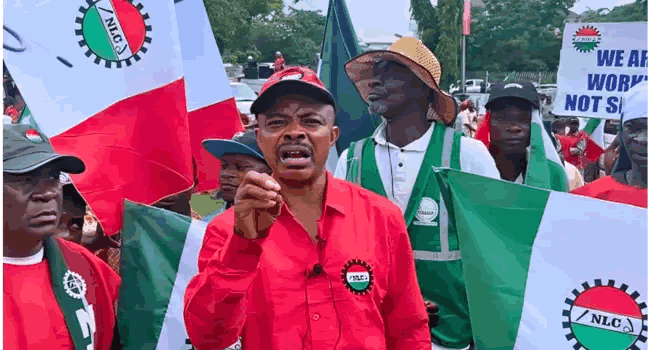The Federal Government is set to convene a pivotal meeting next week to address the demands put forth by organized labor, which include calls for the reinstatement of power subsidies and the rollback of recently implemented electricity tariff hikes.
Mrs. Florence Eke, the spokesperson for the Ministry of Power, revealed this to The PUNCH shortly after labor unions staged disruptive protests at the ministry’s headquarters in Abuja on Monday.
Despite the government’s commitment to dialogue, labor unions have issued a stern warning of continued protests until their demands are met, signaling potential for escalated action should the tariff hike remain unchanged.
The protests not only paralyzed operations at the Federal Ministry of Power and the Nigeria Electricity Regulatory Commission but also disrupted activities of distribution companies nationwide. The unrest stems from the Federal Government’s decision to increase electricity tariffs and eliminate subsidies in the power sector.
The Nigeria Electricity Regulatory Commission (NERC) announced the tariff hike for Band A customers, revealing a staggering 240% increase from the previous rate, amounting to N225 per kilowatt-hour. This move, affecting approximately 15% of the total 12.82 million power consumers, marks a significant policy shift aimed at saving the government an estimated N1.5 trillion.
In response to mounting pressure from labor unions, the Ministry of Power has pledged to organize a stakeholder meeting next week to address grievances and foster transparent dialogue. However, labor representatives remain skeptical, issuing a one-week ultimatum for the government to reverse the tariff hike or face further action.
Hakeem Ambali, National Treasurer of the Nigeria Labour Congress (NLC), emphasized that the Monday protest was just the beginning, warning of intensified action if their demands are not met within the specified timeframe.
Similarly, Tommy Etim, First National Deputy President of the Trade Union Congress (TUC), echoed the sentiment, emphasizing that engagement with the government would only resume once the tariff hike is completely rolled back.
As tensions mount and labor unions stand firm on their demands, the nation braces for further disruptions and potential escalation of protests in the coming days.
NewsAnalytrics Analysis


